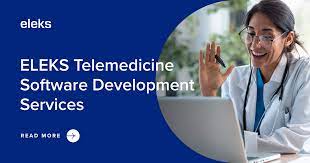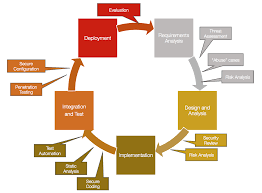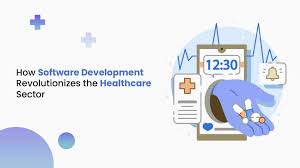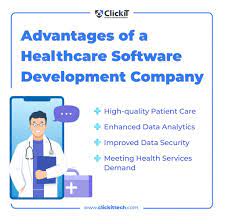Revolutionizing Healthcare: The Future of Telemedicine Software Development
The Rise of Telemedicine Software Development
Telemedicine software development has revolutionized the way healthcare services are delivered to patients. With the advancement of technology, telemedicine has become increasingly popular, especially in recent times when remote access to healthcare is crucial.
Benefits of Telemedicine Software
Telemedicine software allows healthcare providers to connect with patients virtually, enabling remote consultations, diagnosis, and treatment. Some key benefits of telemedicine software include:
- Increased access to healthcare services for patients in remote or underserved areas.
- Convenience for both patients and healthcare providers by eliminating the need for in-person visits.
- Cost-effectiveness by reducing travel expenses and time spent on traditional appointments.
- Improved patient engagement and satisfaction through personalized care and easier communication with providers.
- Enhanced efficiency for healthcare organizations by streamlining processes and reducing administrative burdens.
Key Features of Telemedicine Software
Telemedicine software typically includes features such as:
- Secure video conferencing for virtual consultations.
- Electronic health record (EHR) integration for seamless access to patient information.
- Patient scheduling and appointment reminders.
- E-prescribing capabilities for sending prescriptions electronically to pharmacies.
- Billing and payment processing for efficient financial transactions.
- Compliance with data protection regulations to ensure patient confidentiality.
The Future of Telemedicine Software Development
As telemedicine continues to evolve, the future of telemedicine software development looks promising. Advancements in artificial intelligence, machine learning, and virtual reality are expected to enhance the capabilities of telemedicine platforms further. Moreover, interoperability between different systems will be crucial to ensure seamless communication between healthcare providers and improved patient outcomes.
Top 5 FAQs About Telemedicine Software Development and Technology
- What hardware and software are used for telemedicine?
- What software is used for telemedicine?
- How to develop a telehealth program?
- What is a telemedicine software?
- What technology does telemedicine use?
What hardware and software are used for telemedicine?
In telemedicine, a variety of hardware and software components are utilized to facilitate remote healthcare services. Common hardware includes webcams, microphones, and speakers for video and audio communication between patients and healthcare providers. Additionally, specialized medical devices such as digital stethoscopes, otoscopes, and vital sign monitors may be used for remote examinations. On the software side, telemedicine platforms often incorporate secure video conferencing tools, electronic health record (EHR) systems for patient data management, scheduling applications for appointments, and billing software for financial transactions. Ensuring compatibility and integration among these hardware and software elements is essential to deliver effective telemedicine services efficiently.
What software is used for telemedicine?
In the realm of telemedicine software development, various platforms and applications are utilized to facilitate remote healthcare services. Commonly used software for telemedicine includes video conferencing tools like Zoom, Microsoft Teams, or specialized telehealth platforms such as Doxy.me, Amwell, and Teladoc. These software solutions enable healthcare providers to conduct virtual consultations, share medical records securely, prescribe medications electronically, and manage appointments efficiently. The choice of software for telemedicine often depends on factors such as security features, ease of use, integration capabilities with electronic health records (EHR), and compliance with healthcare regulations like HIPAA. Selecting the right software is essential to ensure seamless communication between patients and providers while maintaining high standards of care delivery in a remote setting.
How to develop a telehealth program?
Developing a telehealth program involves several key steps to ensure its successful implementation. Firstly, it is essential to define the goals and objectives of the program, taking into consideration the specific needs of both healthcare providers and patients. Conducting thorough research on available telemedicine software solutions and selecting a platform that aligns with the program’s requirements is crucial. Collaborating with IT professionals and healthcare experts to design a user-friendly interface, incorporating features such as secure video conferencing, EHR integration, appointment scheduling, and data security measures are vital components of developing a robust telehealth program. Regular evaluation and feedback from users can help in refining the program and ensuring its effectiveness in delivering remote healthcare services efficiently.
What is a telemedicine software?
A telemedicine software is a specialized digital platform that enables healthcare providers to deliver medical services to patients remotely through virtual consultations. It allows for real-time communication between patients and healthcare professionals via secure video conferencing, messaging, and other interactive tools. Telemedicine software typically includes features such as electronic health record integration, appointment scheduling, e-prescribing, and secure data transmission to ensure patient privacy and compliance with healthcare regulations. By leveraging telemedicine software, healthcare providers can expand access to care, improve patient engagement, and enhance overall efficiency in delivering medical services beyond traditional in-person visits.
What technology does telemedicine use?
Telemedicine utilizes a variety of technologies to facilitate remote healthcare services. Key technologies commonly used in telemedicine software development include secure video conferencing platforms for virtual consultations, electronic health record (EHR) systems for accessing patient information, patient scheduling tools, e-prescribing capabilities for sending prescriptions electronically, and billing and payment processing features. Additionally, telemedicine software often incorporates data protection measures to ensure patient confidentiality and compliance with regulations. The integration of these technologies enables healthcare providers to deliver efficient and effective care to patients remotely, improving access to healthcare services and enhancing overall patient experience.






